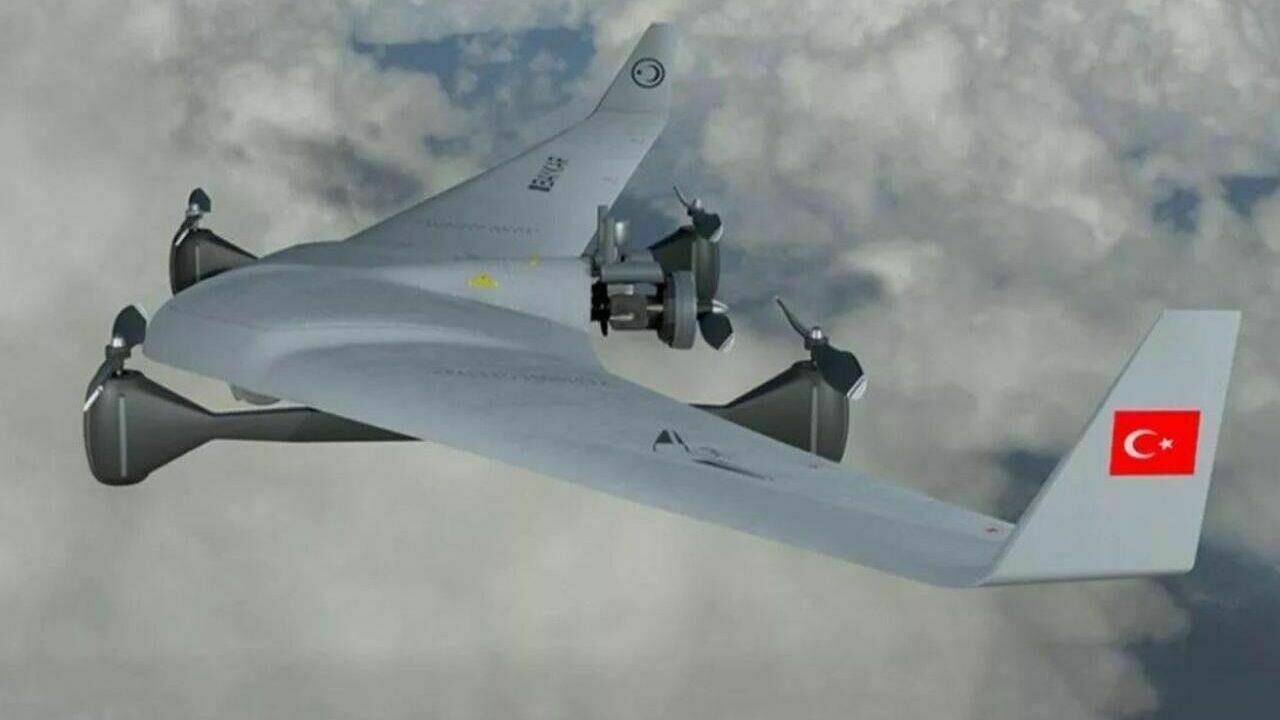
Bayraktar in a new guise: Turkey has tested a hybrid drone for a long flight
Alexander Sychev
One of the results of the Ukrainian crisis was the growing popularity of drones among the military.
The emerging demand encourages manufacturers to offer all new unmanned aerial vehicles. One of the most interesting is Bayraktar DIHA, the first test of which was conducted by the Turkish company Baykar Makina.
The abbreviation DIHA means "vertical landing unmanned aerial vehicle". The other day Bayraktar DIHA, on the design of which the company has been working for several years, made a working flight at an altitude of about 2.5 thousand meters, returned to the base and landed.
The peculiarity of the Turkish vertical take-off and landing drone is that two types of engines were combined in the DIHA design. Electric ones are used for vertical takeoff and landing, and a small internal combustion engine with low fuel consumption, created by Erin Motor, provides horizontal flight.
The engine has electronic fuel injection, which makes it more reliable in comparison with carburetor counterparts. This solution allows you to automatically adjust fuel consumption depending on the altitude of the flight. Paired with the motor, there is a current generator that provides electricity to all the electronics of the drone, as well as charges the batteries for landing.
Four electric motors with propellers are carried out on consoles, and the pushing engine is located in the rear part of the fuselage. After separation from the surface, including the moving platform, the electric motors are switched off, and the device switches to airplane mode.
The maximum flight speed reaches 150 kilometers per hour, and the cruising speed is 60. At this speed and at a working altitude of about three thousand meters, the device can stay in the air for 12 hours. This is more than any of the existing electric drones. The maximum height to which a Turkish drone can climb reaches six thousand meters.
Knowing the speed and time spent in the air, you can calculate the distance to which the drone can fly at one gas station. However, this arithmetic action will not give a significant result for evaluating the tactical qualities of the drone. The fact is that he is able to move away from the operator's station without interrupting communication for 150 kilometers.
However, a drone with a wingspan of five meters and a body length of one and a half meters, constant monitoring by the operator is not required. It was equipped with sufficient autonomy. He can carry out the task laid down in the program in fully automatic mode, and then return to the range of the radio station, as well as independently perform landing and takeoff.
However, outside the range of radio communications, ground services will not be able to receive intelligence in real time, which significantly reduces their value. In addition, the drone was created not only for reconnaissance, but also as a means of controlling ground forces.
The need for radio communication is one of the weak points of any drones. There is always a danger of interception by means of electronic warfare. To reduce the threat, a triple redundancy of the control system is provided on the DIHA drone.
With a maximum take-off weight of 50 kilograms, the payload is only five kilograms. Not much, but quite enough to place a high-resolution day and night vision camera and a laser rangefinder and target designator on board. DIHA can be used for laser illumination of targets and guidance of high-precision missiles and projectiles. The camera and laser are located in the front of the airframe under the fuselage.
The designers have provided three options for landing the aircraft: vertical on electric motors, in airplane mode on the fuselage and on a parachute, if none of the first two options for some reason does not fit.
Serial production and deliveries of Bayraktar DIHA to the troops are scheduled to begin this year.